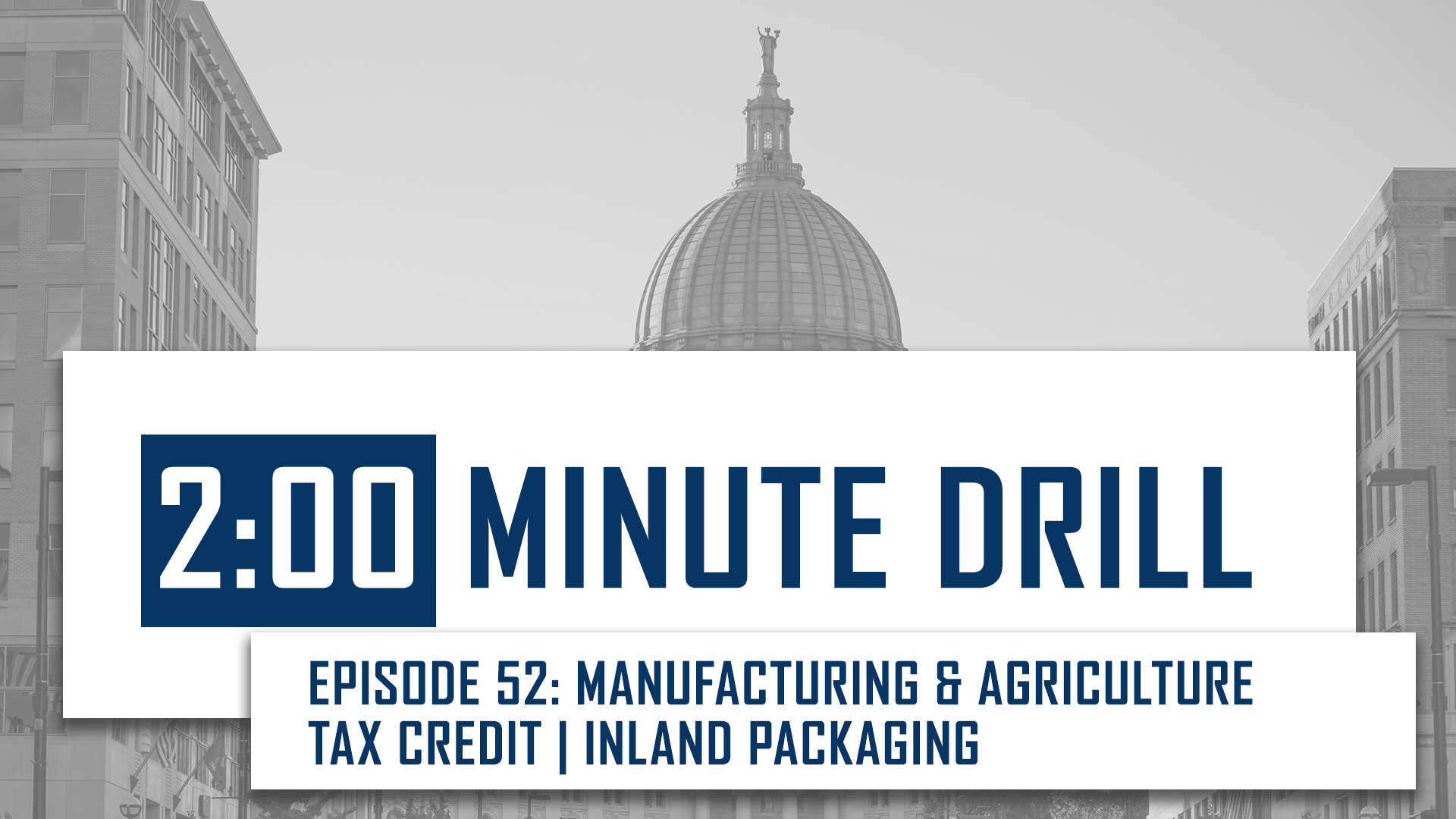MADISON – Gov. Tony Evers announced last week that he would include a proposal in his budget to close the so-called “dark store loophole.” Unfortunately for the governor and taxpayer-funded lobbyists, there is no loophole to actually close.
The myth of the “dark store loophole” was created by taxpayer-funded lobbyists in an attempt to increase taxes on local businesses, and they have spent an immense amount of taxpayer dollars on advocacy campaigns and lobbying to convince the public that there is a problem needing to be fixed.
However, the misinformation is not based in fact. To correct the record, Wisconsin Manufacturers & Commerce (WMC) is releasing the following Myth vs. Fact information on the issue.
“It is unfortunate to see Gov. Evers taking the sides of local governments whose singular goal is to raise property taxes,” said WMC Senior Vice President of Government Relations Scott Manley. “The so-called ‘dark store’ proposals would do nothing other than make it more expensive to do business in Wisconsin by unfairly targeting small businesses, local retailers and hometown manufacturers.”
Dark Stores: Myth vs. Fact
Myth #1
Big-box stores are using a loophole to significantly lower their taxes, and local governments are losing revenue because they need refund large corporations.
Fact #1
Overly aggressive assessors are using an illegal strategy to dramatically increase the taxable value of local businesses, resulting in larger than normal tax assessments. These companies challenge the illegal assessments in court to bring their taxable amount back to an appropriate amount. They continue to win because local governments are breaking the law. If they would assess property correctly, they would not need to refund property taxpayers in the first place. Additionally, these over-assessments are not just on large “big box retailers,” but also impact small businesses, local main-street retailers and manufacturers. A change in the law could drastically increase property taxes for all businesses, and likely homeowners, as well.
—
Myth #2
Retailers with new stores are successfully using sales of run-down and empty properties to justify lower property tax assessments.
Fact #2
No judge would accept the sale of a physically deteriorated property as a good indication of value or a comparable sale for a newer building. Municipalities have yet to provide an example where a taxpayer has prevailed in court using sales of physically deteriorated vacant properties to justify a lower assessment of a new occupied property.
—
Myth #3
In recent years there has been a significant property tax shift to homeowners as a result of businesses challenging their tax assessments.
Fact #3
There has not been a statewide shift in the property tax burden to homeowners. According to the Wisconsin Department of Revenue, over the past 10 years there has been over a two-percent shift in the statewide property tax burden the other direction – from homeowners to businesses. Businesses are paying a higher percentage of the property tax burden than they were 10 years ago.
—
Myth #4
The “dark stores theory” has led to double-digit percentage increases in residential homeowners’ property tax burden.
Fact #4
A study conducted by the Wisconsin Policy Forum using data from the Wisconsin League of
Municipalities showed that only $3.1 million was refunded in all business related property tax challenges in 2017. That represents 0.03 percent of property tax revenue collected, an infinitesimal portion of the tax. Local governments are still collecting over 99.9 percent of property taxes without incident. Wisconsin’s current property tax system is not broken.
—
Myth #5
Businesses use a disproportionate amount of local services compared to what they pay in taxes.
Fact #5
According to a 2018 study by the non-partisan Council on State Taxation, Wisconsin businesses pay approximately 48 percent of local taxes and fees in the state. Proponents of the bills have provided no evidence to suggest businesses consume roughly half of fire, police and EMS services in localities, and they rarely use a wide variety of local services such as parks, libraries, etc. Wisconsin businesses are paying their fair share of the local tax burden.
—
For more details about the so-called “dark stores” issue, check out WMC’s recent editorial that appeared in newspapers across the state:





